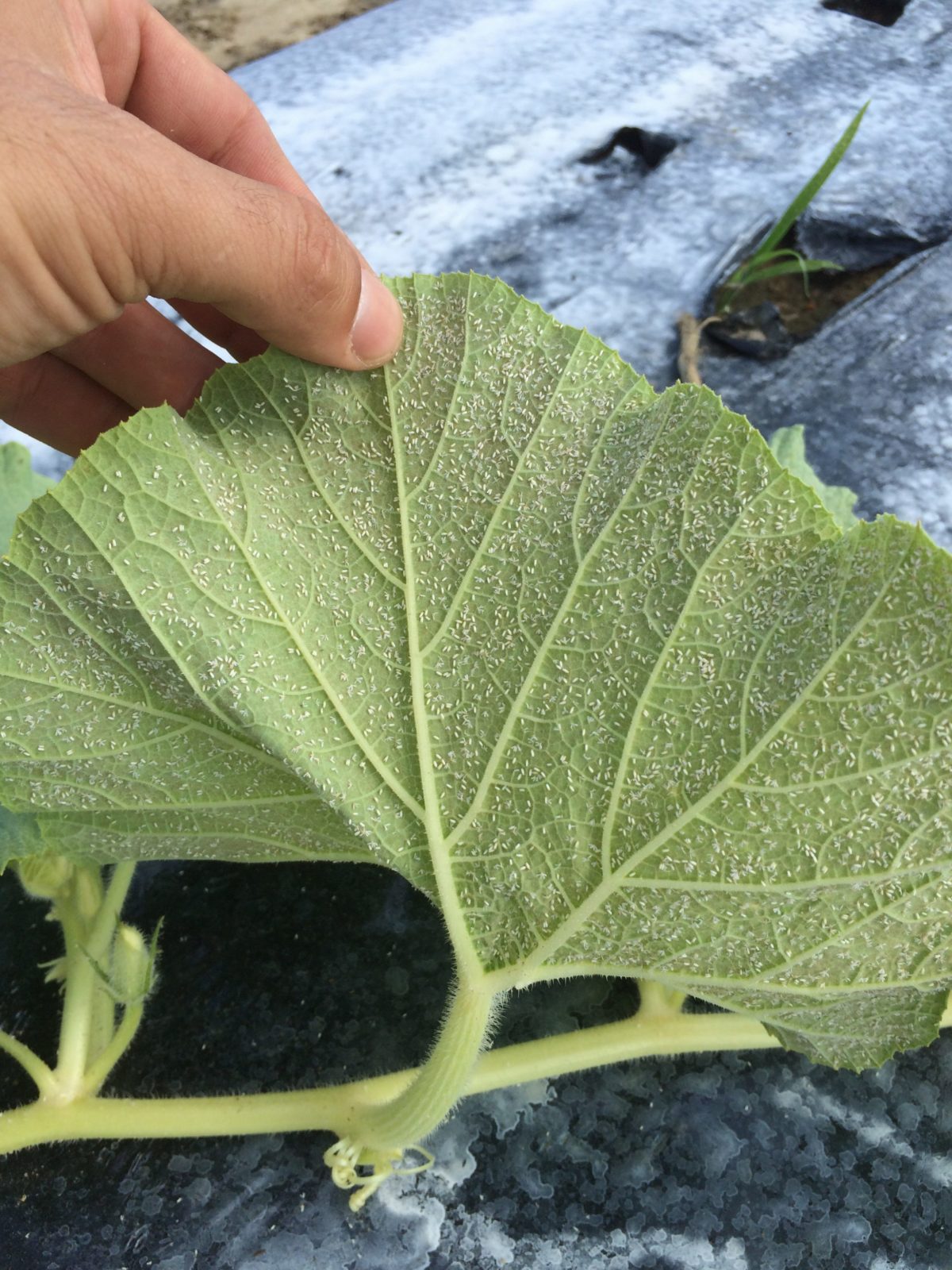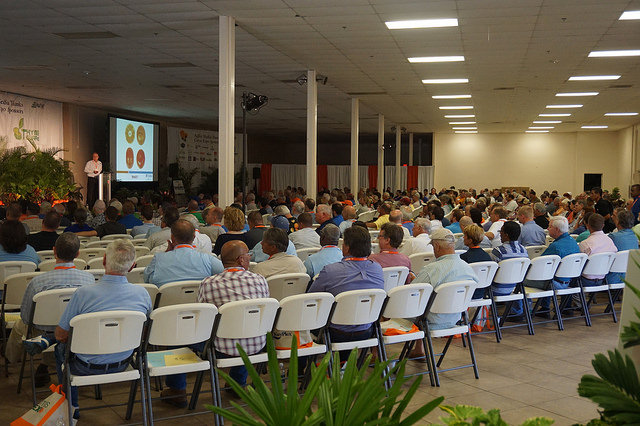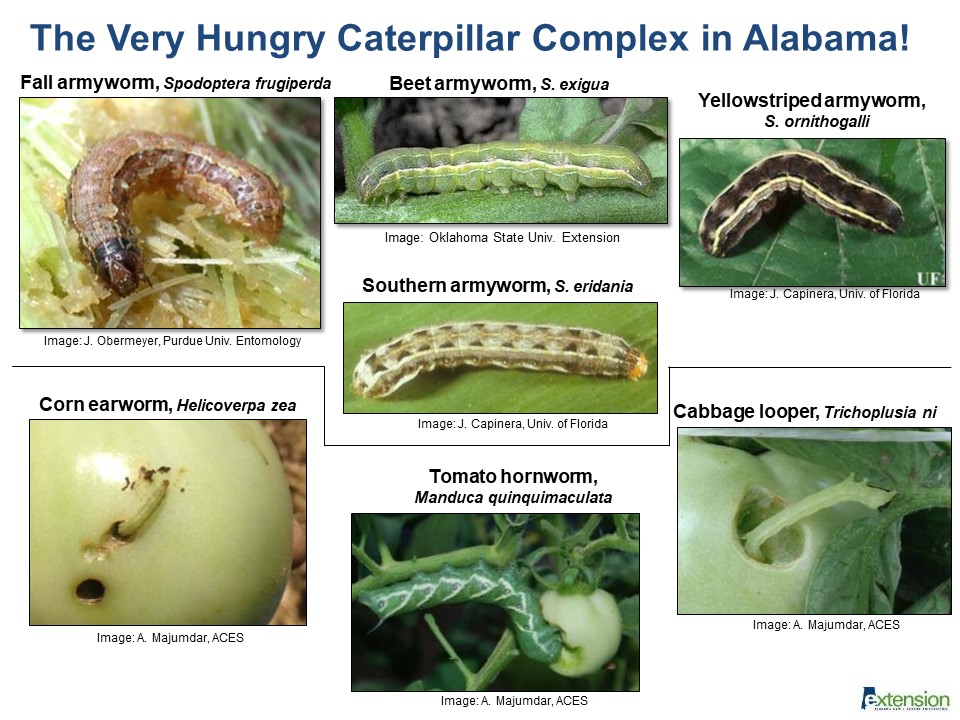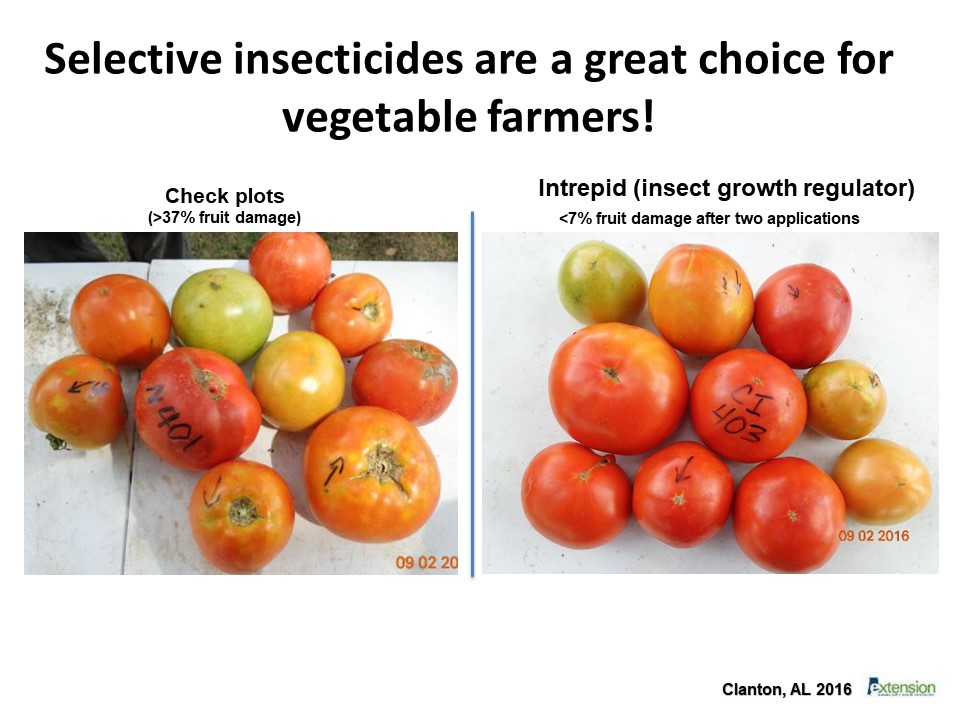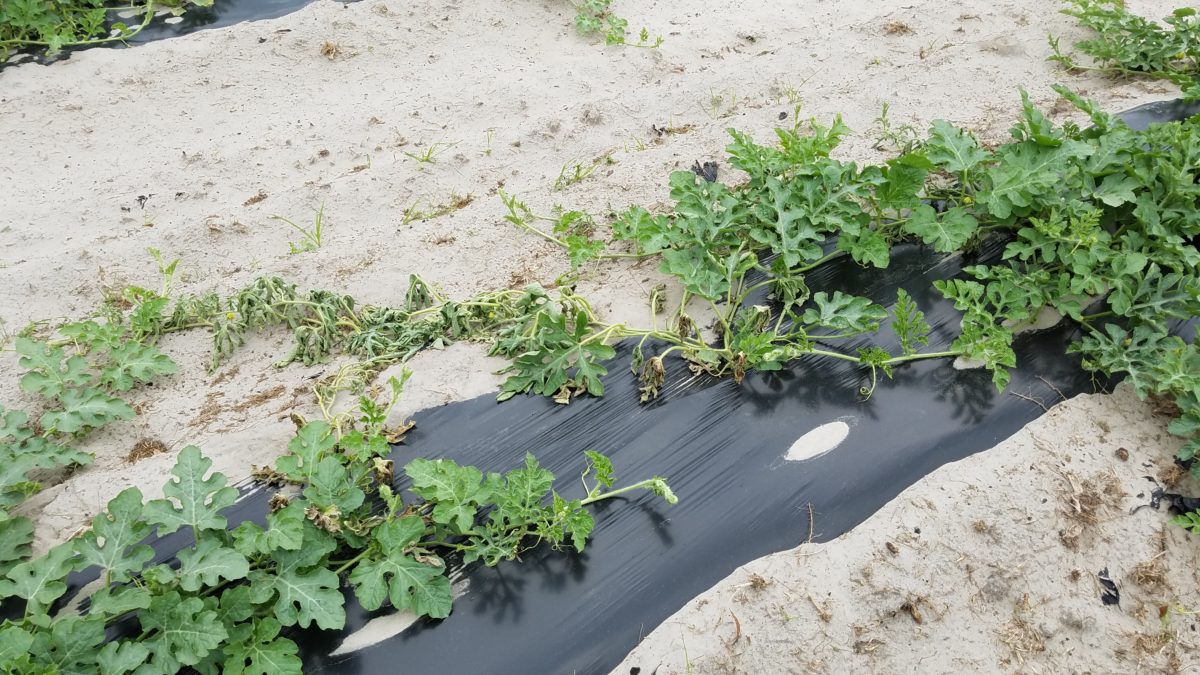By Timothy Coolong Southern Georgia is a powerhouse for wholesale fresh-market vegetable production. The vegetable industry in Georgia was valued at over $1 billion in 2015, with more than 170,000 acres in production, according to the University of Georgia’s 2015 Georgia Farm Gate Value Report. SIZE AND SCOPE The vegetable industry in southern Georgia is also extremely diversified, with more …
Vegetable and Specialty Crop Seminars Pack a Punch
The 27th year of Citrus Expo is expected to be the biggest year yet with an added vegetable and specialty crop educational program. AgNet Media has always relied on University of Florida Institute of Food and Agricultural Sciences professionals to help create an informative program for growers. This year, Gene McAvoy, a regional vegetable Extension agent, led the efforts in …
Rid Your Crop of Caterpillars
Different species of caterpillars can be detrimental to fruit and vegetable crops in the Southeast. Ayanava Majumdar, Extension entomologist with the Alabama Cooperative Extension Service, says although recent storms in the Southeast have slowed down moth activity, pests are still looming due to the heat. According to Majumdar, armyworms seem to be active. Beet armyworms are usually the first insects …
Vegetable Pest Problems
David Riley, a professor of entomology at the University of Georgia, says that two pests have been big issues for Southeastern vegetable growers: diamondback moth (DBM) and whitefly. DIAMONDBACK MOTH DBM continues to be a struggle for Southeastern vegetable growers, mostly due to insecticide resistance. Riley says that DBM resistance in cabbage and collards is a long-standing problem. “Diamondback moth …
The Complex World of Insecticide Modes of Action
Selecting insecticides can be extremely cumbersome and complex. Ayanava Majumdar, Auburn University Extension entomologist, says there are five different “mode of action” categories that can help conventional growers decide what kind of insecticide will be most effective in their production systems. The five categories are contact poisons, insect growth regulators, mitochondrial or cellular respiration inhibitors, Bacillus thuringiensis and the unknown. …
Southeastern Strawberry Pest Problems
Strawberries are starting to make their seasonal debut in the Southeast as Florida growers begin their harvest. After the harvest is a great time to reflect on issues from the previous season and look toward the next season. Rebecca Schmidt-Jeffris, assistant professor of entomology at Clemson University, recently gave a presentation on a strawberry pest that caused problems this past …
FAMU’s Programs Help Tomato and Pepper Growers in Florida
Researchers at Florida Agricultural and Mechanical University (FAMU) are working to give growers hands-on help for pest and disease management. The Center for Biological Control in the College of Agriculture and Food Sciences at FAMU provides effective integrated pest management (IPM), said Muhammad Haseeb, assistant professor at the center. The center’s program gives solutions to help growers tackle issues they …
Watermelon Disease Watch
Florida watermelon growers are constantly faced with the challenge of disease management. Whether it’s diseases vectored by whiteflies or fungal diseases such as fusarium wilt, once a crop is infected, the results can be detrimental. Nicholas Dufault, assistant professor of plant pathology and Extension specialist at the University of Florida (UF) in Gainesville, has been studying ways growers can manage …










